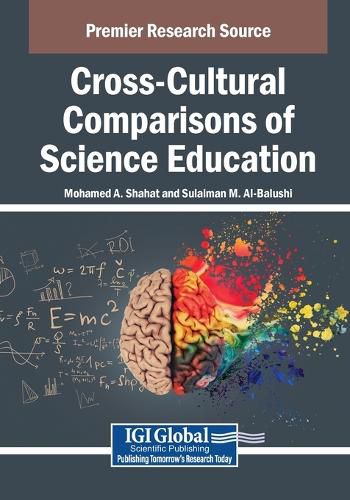Readings Newsletter
Become a Readings Member to make your shopping experience even easier.
Sign in or sign up for free!
You’re not far away from qualifying for FREE standard shipping within Australia
You’ve qualified for FREE standard shipping within Australia
The cart is loading…






This title is printed to order. This book may have been self-published. If so, we cannot guarantee the quality of the content. In the main most books will have gone through the editing process however some may not. We therefore suggest that you be aware of this before ordering this book. If in doubt check either the author or publisher’s details as we are unable to accept any returns unless they are faulty. Please contact us if you have any questions.
Science education varies across cultures, influenced by factors like educational philosophy, societal values, economic conditions, and historical contexts. Cross-cultural comparisons of science education offer valuable insights into how different countries approach the teaching of scientific concepts and skills, as well as the outcomes they achieve. These comparisons reveal the diverse ways in which science is integrated into curricula, the teaching methods used, and the resources available to both educators and students. By examining the strengths and challenges of various educational systems, we can better understand how cultural contexts shape students' engagement with science, their ability to critically think, and the overall impact on scientific literacy. Such comparisons provide opportunities for mutual learning and the potential to improve science education globally by adopting the best practices from different cultural settings. Cross-Cultural Comparisons of Science Education examines the problems involved in cross-cultural comparisons in science education by drawing on past studies investigating cultural differences. It explores teaching practices and student learning outcomes, considering different concepts of quality teaching and the impact of cultural characteristics on science education. This book covers topics such as mathematics, sociology, and teacher training, and is a useful resource for sociologists, educators, academicians, researchers, and scientists.
$9.00 standard shipping within Australia
FREE standard shipping within Australia for orders over $100.00
Express & International shipping calculated at checkout
This title is printed to order. This book may have been self-published. If so, we cannot guarantee the quality of the content. In the main most books will have gone through the editing process however some may not. We therefore suggest that you be aware of this before ordering this book. If in doubt check either the author or publisher’s details as we are unable to accept any returns unless they are faulty. Please contact us if you have any questions.
Science education varies across cultures, influenced by factors like educational philosophy, societal values, economic conditions, and historical contexts. Cross-cultural comparisons of science education offer valuable insights into how different countries approach the teaching of scientific concepts and skills, as well as the outcomes they achieve. These comparisons reveal the diverse ways in which science is integrated into curricula, the teaching methods used, and the resources available to both educators and students. By examining the strengths and challenges of various educational systems, we can better understand how cultural contexts shape students' engagement with science, their ability to critically think, and the overall impact on scientific literacy. Such comparisons provide opportunities for mutual learning and the potential to improve science education globally by adopting the best practices from different cultural settings. Cross-Cultural Comparisons of Science Education examines the problems involved in cross-cultural comparisons in science education by drawing on past studies investigating cultural differences. It explores teaching practices and student learning outcomes, considering different concepts of quality teaching and the impact of cultural characteristics on science education. This book covers topics such as mathematics, sociology, and teacher training, and is a useful resource for sociologists, educators, academicians, researchers, and scientists.